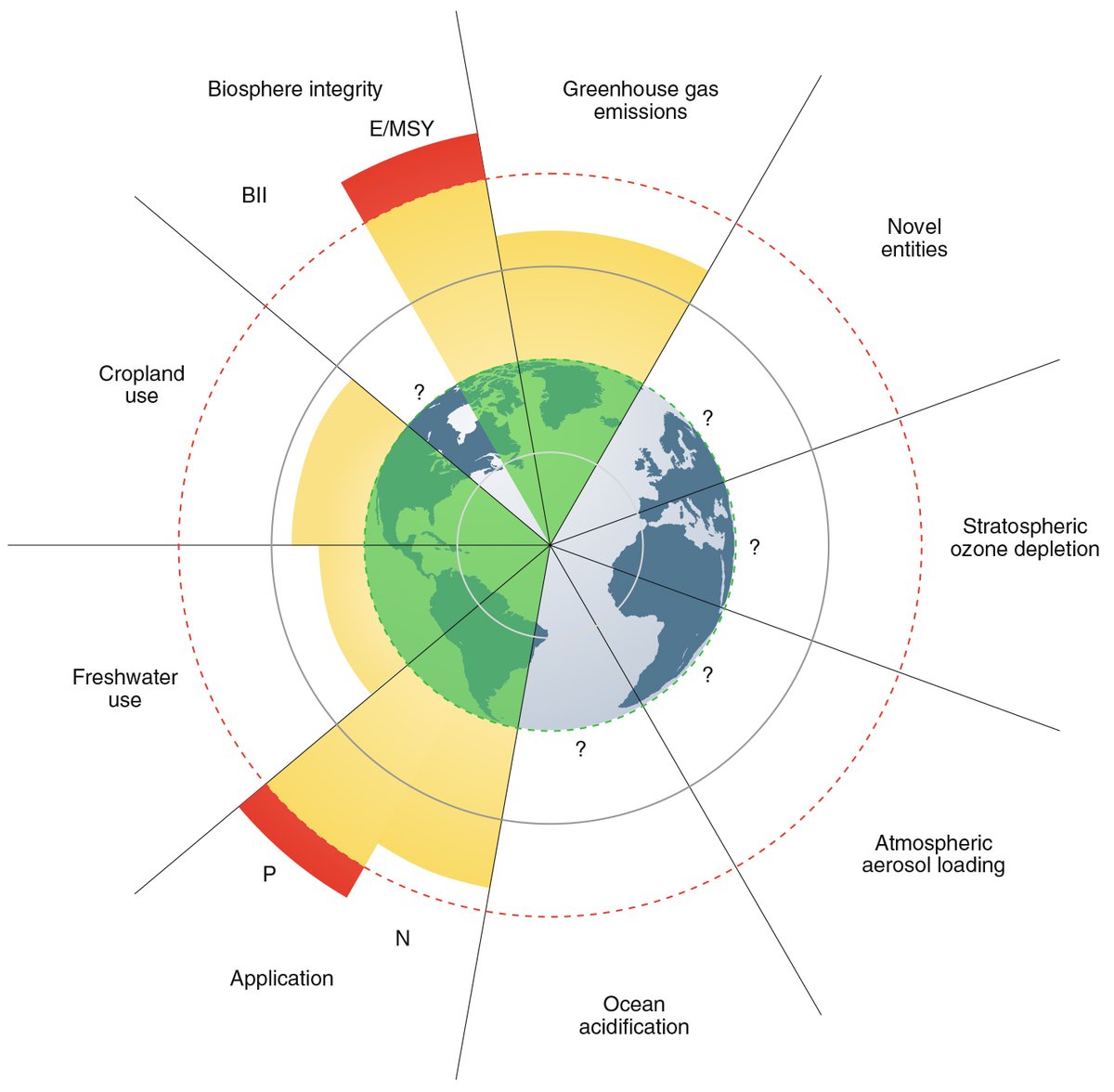2020-Nov-23 : In 2030, Berlin feeds itself in a climate and socially just way!
Katrin Bohn took part in the action conference organised by Berlin’s Food Policy Council which happened online from the 19th to the 21st of November 2020. Under the motto ‘2030 ernährt sich Berlin klima- und sozial gerecht! [In 2030, Berlin feeds itself in a climate and socially just way!]’, the conference brought together stakeholders from food system, climate protection and social movements in order to ‘jointly initiate the climate-friendly food system transformation 2030 and form a broad alliance of committed people, organisations and movements’.
With the AG Stadt & Ernährung, Katrin is a co-initiator of Berlin’s Food Policy Council [Ernährungsrat Berlin] and still supports the group's work.
With the AG Stadt & Ernährung, Katrin is a co-initiator of Berlin’s Food Policy Council [Ernährungsrat Berlin] and still supports the group's work.

'An estimate of the global food system’s transgression of planetary boundaries. Here, the safe operating space (green) provides an estimate of the food-related share of the planetary boundaries […] The zone of uncertainty (yellow) defines dangerous risk, whereas high-risk (red) indicates where production has exceeded the assessed uncertainty range in science […] E/MSY, extinctions per million species-years; BII, Biodiversity Intactness Index; P, phosphorus; N, nitrogen […] image credit: PIK, 2019.’ (image: Rockström et al. 2020]
Over 3 days, more than 100 people mainly from Berlin were joined by like-minded participants from all over Germany to discuss implementation projects and ideas for a sustainable food system in Berlin and the region. The overall aim was to develop a concrete “Klima-Acker- und Speise-Plan” [climate-friendly farmland and catering plan] which contains practical approaches, ideas for action and demands on political decision-makers.
The conference started on Thursday afternoon with a keynote presentation by Prof. Dr. Marit Rosol from the University of Calgary who highlighted the multiple dependencies between socially-just and climate-responsible actions within the food system. Quoting from a recent publication by researchers of the German Potsdam Institute for Climate Impact Research, Marit stressed that ‘the global food system is the single largest greenhouse-gas-emitting sector in the world, and by far the largest cause of biodiversity loss, terrestrial ecosystem destruction, freshwater consumption, and waterway pollution due to overuse of nitrogen and phosphorus’ (Rockström et al. 2020).
As part of this discussion – in German -, we talked about food deserts – urban areas with no possibility to shop for a healthy variety of food. Panel member Dr. Hanna Augustin suggested that the focus of food desert research on the spatial or geographical leads to other important aspects being missed. Katrin responded: ‘Zu den Food Deserts (Nahrungsmittelwüsten): Ich gebe Hanna recht, der räumliche Ansatz ist nicht das Einzige, was zählt. Aber an einem räumlichen Argument festzuhalten, das gleichzeitig inklusiv und politikgesteuert ist, ist sehr wichtig. Das ist nicht nur deshalb so, weil ansonsten Stadtplanung und Urban Design in der Food-Debatte weiterhin (!) „hinten runterfallen“, sondern auch, weil gerade Stadtplanung, Urban Design, Architektur ja auch ganz wichtige Impulse für ein nachhaltiges städtisches Nahrungssystem geben können. Marit hatte z.B. Wohnkosten genannt, also das Wohnumfeld gestalten. Man kann aber auch in Richtung Grüne Infrastruktur, Ökosystemdienstleistungen usw. denken.’
The conference started on Thursday afternoon with a keynote presentation by Prof. Dr. Marit Rosol from the University of Calgary who highlighted the multiple dependencies between socially-just and climate-responsible actions within the food system. Quoting from a recent publication by researchers of the German Potsdam Institute for Climate Impact Research, Marit stressed that ‘the global food system is the single largest greenhouse-gas-emitting sector in the world, and by far the largest cause of biodiversity loss, terrestrial ecosystem destruction, freshwater consumption, and waterway pollution due to overuse of nitrogen and phosphorus’ (Rockström et al. 2020).
As part of this discussion – in German -, we talked about food deserts – urban areas with no possibility to shop for a healthy variety of food. Panel member Dr. Hanna Augustin suggested that the focus of food desert research on the spatial or geographical leads to other important aspects being missed. Katrin responded: ‘Zu den Food Deserts (Nahrungsmittelwüsten): Ich gebe Hanna recht, der räumliche Ansatz ist nicht das Einzige, was zählt. Aber an einem räumlichen Argument festzuhalten, das gleichzeitig inklusiv und politikgesteuert ist, ist sehr wichtig. Das ist nicht nur deshalb so, weil ansonsten Stadtplanung und Urban Design in der Food-Debatte weiterhin (!) „hinten runterfallen“, sondern auch, weil gerade Stadtplanung, Urban Design, Architektur ja auch ganz wichtige Impulse für ein nachhaltiges städtisches Nahrungssystem geben können. Marit hatte z.B. Wohnkosten genannt, also das Wohnumfeld gestalten. Man kann aber auch in Richtung Grüne Infrastruktur, Ökosystemdienstleistungen usw. denken.’
For more information on the Ernährungsrat’s action conference see here.
For more information on the Ernährungsrat's development see its Practice page on this website.
The full reference for the paper by Johan Rockström’s team is:
Rockström, J., Edenhofer, O., Gaertner, J. and DeClerck, F. (2020) Planet-proofing the global food system, in: Nature Food, issue 1 (2020), pp. 3–5. It can be found here.
To keep up to date with the project's development see our blog Productive Urban Landscapes.
For more information on the Ernährungsrat's development see its Practice page on this website.
The full reference for the paper by Johan Rockström’s team is:
Rockström, J., Edenhofer, O., Gaertner, J. and DeClerck, F. (2020) Planet-proofing the global food system, in: Nature Food, issue 1 (2020), pp. 3–5. It can be found here.
To keep up to date with the project's development see our blog Productive Urban Landscapes.










